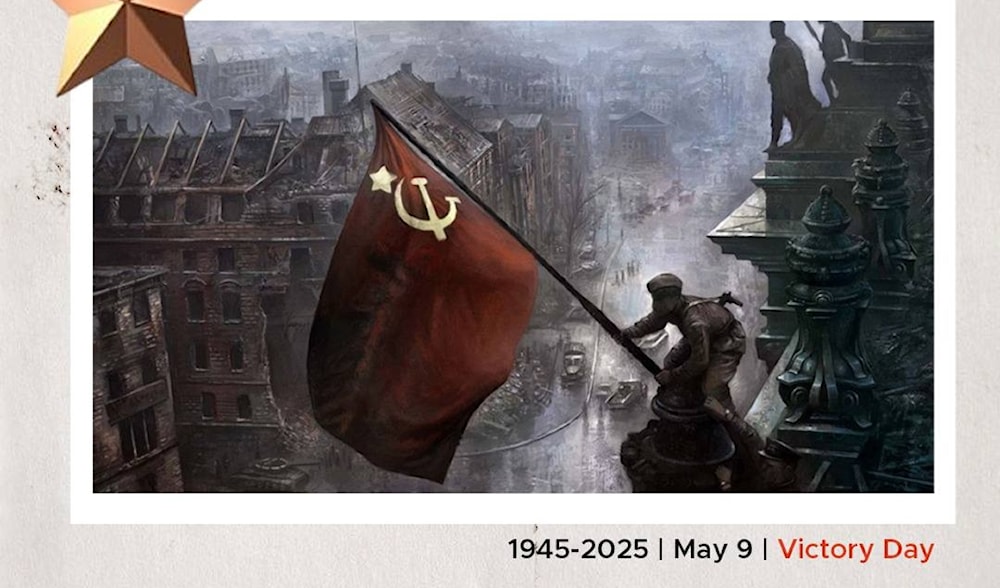Victory Day in Russia: Commemorating the past amid present tensions
The widely celebrated Victory Day in Russia comes amid brewing global tensions and an unrelenting conflict with Ukraine, bringing historical parallels between the current challenges and the Moscow’s fights during World War II.
-

Victory Day in Russia: Commemorating the past amid present tensions (Photo: Batoul Chamas)
Every year on May 9, Russia marks Victory Day, one of the most significant holidays on the national calendar. The date commemorates the Soviet Union’s victory over Nazi Germany in the Great Patriotic War: Russia’s name for its role in World War II, which lasted from June 22, 1941, to May 9, 1945.
The triumph, however, cost the Soviet Union an estimated 27 million lives, making the victory not just a military success but a deeply personal and national trauma. For Russians, Victory Day is more than a military commemoration; it is a sacred tribute to sacrifice, resilience, and survival.
Parades, patriotism, and public memory
The centerpiece of Victory Day celebrations is the grand military parade held in Moscow’s Red Square. Thousands of troops march in formation alongside armored vehicles, missile systems, and flyovers by fighter jets. Russian President Vladimir Putin typically delivers a speech to honor the fallen and underline the country’s historical and contemporary strength.
Across Russia and other post-Soviet states, veterans don their medals and are honored by younger generations, which inspired the Immortal Regiment march, where civilians carry portraits of relatives who fought in the war. The march has become one of the most poignant traditions, reinforcing the intergenerational transmission of memory.
Victory Day is also marked by concerts, fireworks, and memorial ceremonies at war monuments. For many, it is both a day of mourning and national pride.
Legacy reinvoked in the present
This year’s Victory Day carries special weight, as it coincides with the third anniversary of the Russia-Ukraine conflict, which began in 2022 with the war in Ukraine. Moscow has increasingly drawn rhetorical and symbolic links between the fight against Nazism in World War II and what it portrays as a struggle against Western aggression and what the Russians describe as far-right extremism in Ukraine.
The Kremlin has framed the conflict not only in geopolitical terms but as part of a longer historical arc. Victory Day imagery has been used to bolster public support for military efforts and to establish Russia as a defender of sovereignty and anti-fascist values.
Western boycotts and shifting diplomatic tides
In past years, leaders from around the world, including former US President George W. Bush and German Chancellor Angela Merkel, attended Victory Day celebrations in Moscow. But since 2014, and more starkly since 2022, the international presence has waned.
Amid sweeping sanctions and increasing isolation from the West, this year’s celebrations are likely to see fewer foreign dignitaries and more emphasis on Russia’s alliances with non-Western partners. It will also serve as a stage for Moscow to reinforce its narrative of resistance against what it sees as Western neo-imperialism.
Latin American presidents, from Venezuela’s Nicolas Maduro to Cuba’s Diaz-Canel, as well as Chinese President Xi Jinping and Palestinian President Mahmoud Abbas, are expected to attend. Several European delegations are also expected to attend, including the Slovakian Prime Minister, Robert Fico. Serbian President Aleksandar Vucic has also confirmed his attendance after being discharged from the hospital following a health complication.
The presidents of Burkina Faso, Armenia, Azerbaijan, Uzbekistan, and Kyrgyzstan are also expected to make an appearance.
A divided memory
While Victory Day remains sacred in Russia, its legacy is more contested in other parts of the former Soviet Union. In Ukraine, May 9 was a national holiday until 2015, when it was replaced by a Day of Remembrance and Reconciliation on May 8, aligning with Western commemorations.
The conflict has deepened these divisions. For many Ukrainians, the Soviet victory is inseparable from the perceived history of repression and occupation. For Russia, any dilution of May 9’s meaning is often portrayed as historical revisionism or betrayal.
Between mourning and mobilization
As Russia enters a fourth year of conflict in Ukraine, this Victory Day is likely to be as much about the present as the past. Official speeches may honor the sacrifices of World War II, but they will also seek to legitimize current sacrifices on the battlefield. The use of war memory as a tool for unity, legitimacy, and mobilization will be on full display.
Yet for millions of ordinary Russians, Victory Day remains deeply personal, about grandfathers who never returned, grandmothers who survived the siege of Leningrad, and families who endured loss and hunger. It is a day where history and emotion intersect, even as political meanings evolve.
Memory as a mirror
Victory Day in Moscow is both a solemn remembrance and a state spectacle. As the conflict in Ukraine grinds on, the holiday serves as a mirror, reflecting a Russia rooted in its past while navigating a turbulent present. For many, the central message remains: memory is not only about honoring the dead, but shaping the future.

 5 Min Read
5 Min Read








